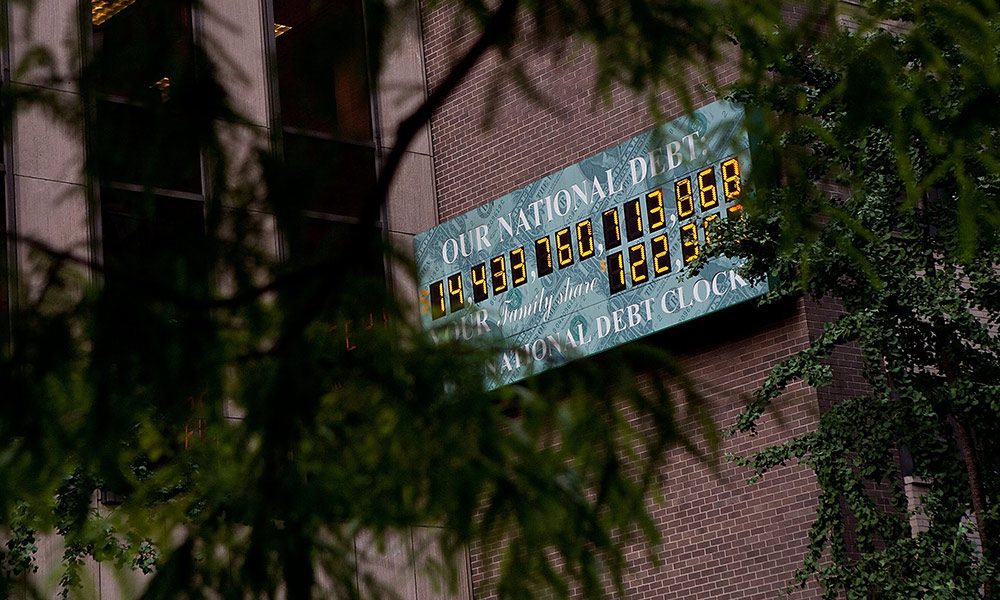University of Rochester political scientist David Primo says he’s worried about the long-term effects of the growing national debt, a view he shared with NPR Marketplace Weekend host Lizzie O’Leary.
“Our debt is going to get so large that it’s going to drive up interest rates. Other countries, other individuals, are going to stop being as interested in buying up our debt, especially if there’s a concern that we may at some point not be able to pay it back,” Primo told O’Leary.
Last week, the Trump administration released a $4.4 trillion federal budget proposal that raised concerns among many economists.
Primo, the University’s Ani and Mark Gabrellian Professor and an associate professor of political science and business administration, is the author of Rules and Restraint: Government Spending and the Design of Institutions (University of Chicago Press, 2007). He explained the link between the deficit and national debt using the metaphor of water in a tub.
“If you think about the water in the tub as the national debt, water flowing into the tub can be thought of as the deficit—the amount of money that the government has to take out in borrowing each year because it’s spending more than it’s taking in,” Primo told NPR. “The concern that economists have is that at some point, if that water keeps flowing into the tub, the tub is going to overflow. And you’ve got a mess on your hands, or in the case of the national debt, you’ve got a crisis on your hands.”
Listen here to Primo’s full interview.




